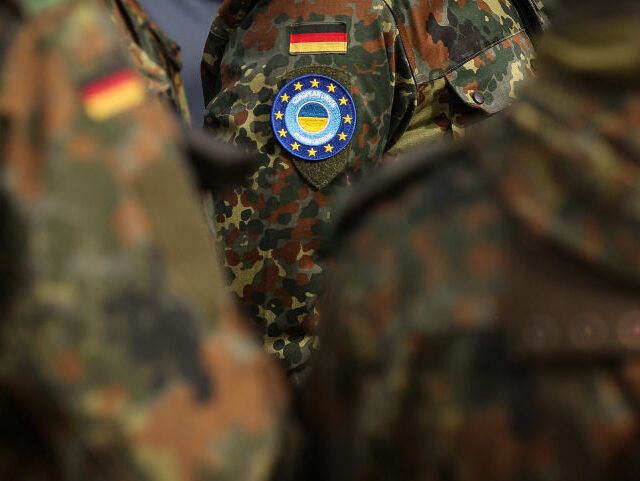“If we want peace, we must prepare for war”, says top European Union figure saying the bloc needs to not just speak the language of diplomacy, “but also the language of power” to Russia.
The world is changing and becoming less secure, and the European Union needs to “shift to a ‘war economy’ mode” to survive, President of the European Council Charles Michel says. Writing an op-ed published on Monday the Belgian, who runs the convening body of the European Union’s leaders, Michel said if Russia was not stopped in its invasion of Ukraine, then Europe would be the next target.
Russia’s invasion of Ukraine has already caused the European Union to become a “geopolitical” entity in a new way as it has moved to order large quantities of ammunition to be delivered to Ukraine, the Council leader said, remarking that the continent has under-spent on defence for years. The remarks echo closely those of European military leaders who have argued in recent months that the post-Cold War era is now over, along with its ‘peace dividend’ of low military spending, freeing up resources for the rest of the economy.
Michel said: “For decades, Europe has not invested enough in our security and defence. Today we face the biggest security challenge since the Second World War, so we must build our defence readiness. This will take a radical and irreversible shift in our thinking, towards a strategic security mindset… If we want peace, we must prepare for war.”
Russia is already trying to “destabilise” other European states and poses a “serious military threat” to Europe if left unchecked, he said. Dissent on this view by those who may argue “Ukraine does not concern us, that it is draining our budgets and dividing us” are speaking “blatant lies” argued Michel, dismissing them as “Kremlin propaganda”.
While the language of preparing for war to guarantee peace closely aligns with actual NATO doctrine, the strident words underline a rapid shift in European attitudes. While in recent years — even after Russia’s first invasion of Ukraine in 2014 — many European states including the big players like Germany were content to spend as little on their militaries as possible and leave America to pick up the tab, that is now rapidly changing as they foresee a deteriorating security picture.
As expressed by Admiral Rob Bauer, the most senior military officer in NATO headquarters back in January, the West is not ready to fight the “whole of society event” war he believes is coming, while a former NATO commander warns “Effective deterrence means military capability and strength”. General Sir Richard Shirreff said: “at a time where the West, NATO is facing a potentially existential threat. It’s existential for Ukraine, but this war, we should remember, is not just a war against Ukraine. It’s a war against the West. It’s a war against NATO, it’s against Ukraine joining the West.
“The only way to ensure this war does not turn into something much, much worse that engulfs us all is through effective deterrence.” NATO states should do as Teddy Roosevelt did for America, and “talk softly but carry a big stick”, he said.
Indeed, Michel’s remarks embodied these increasingly prevalent views, and the politician said: “I knew that the entire post World War II security arrangement had changed forever. The EU had to change with it and fast… A stronger Europe will also contribute to a stronger NATO alliance and enhance our collective defense.”
These views — that Europe can avoid war with Russia through the deterrent power of a potent military establishment ready to go to work — may represent a majority view, but others take the position that actual conflict is something that has to be considered. France’s President Emmanuel Macron is the leader of this faction of European NATO members who say to rule out actual alliance troops fighting against Russia is to concede eventual defeat. As reported, those Eastern European states closest to Europe and feeling the greatest menace from Moscow appear most likely to support that view, including Lithuania which in the past week threw its weight behind Paris, saying Russia’s response should not be feared and that “We need to make sure that Ukraine wins in this war”.

COMMENTS
Please let us know if you're having issues with commenting.